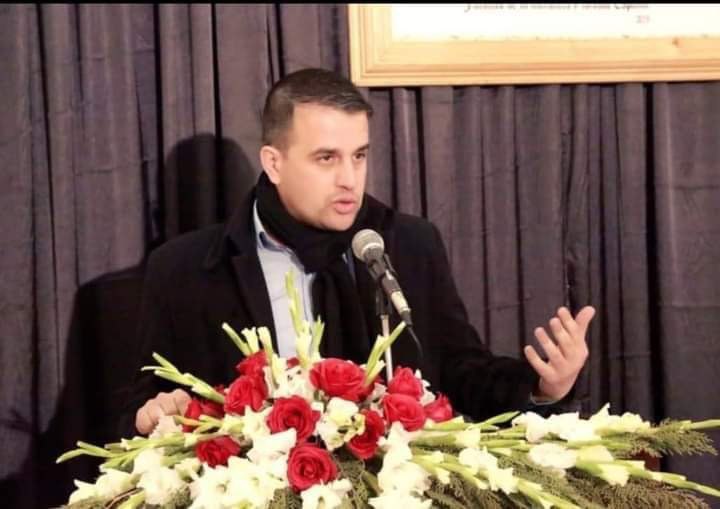Abdul Naser Noorzad
Speaking of qualitative and quantitative change in the explanation and use of power, in the current turbulent time in the international system, has become a significant discourse in this field, especially in academic and intellectual forums. In the meantime, after the increase of China’s economic power, the movements and ambitions of Russia and the attempt to form BRICS and Shanghai as stimulating reactions against American hegemony, which predicts the transfer of power and wealth from Europe and America to Asia. However, Power Transition Theory has not had a convincing answer in examining this development and that how it will happen. Based on the historical tradition of this theory, it has always been possible to change and transform the position of world power, due to war and conflict and the subsequent defeat and victory of the parties. But in the current critical situation, economic interconnectedness, lack of ideological alliances and identity and linguistic polarizations along the civilizational fault lines, there is no clear answer in the field. In order to investigate this issue, the author has listed fifteen features of the post-transition system, which I will discuss below:
1. The main evolution in shaping the thinking of the current period and predicting the future can be seen from the transition period, which is associated with the main characteristic of anarchism. The current transition period, although it cannot explain why and how this historical transformation occurred, but itself will be the foundation of a historical transformation in the post-transition period. So, anarchism will be a prominent feature of this period;
2. The post-transition period will be the result of an era of breaking taboos based on the collapse of global power structures and its distribution, which has no historical background at least in the last century. The formation of polarizations, the unexpected reactions of government actors against global and regional hegemons, is examples of this taboo breaking;
3. The post-transition era is an era without state ideology and competition for global geography. Unlike the ideologies of fascism, communism, and liberalism, which were in competition with each other in international conflicts, the progressive era, an order, lacks such a view and can separate a new example of an approach of conflicting powers in the world arena to mention from the perspective of a specific ideology;
4. As a result of the lack of an ideological era, there is no clear picture of the post-transition era. In this way, visualizing the face, image and style of this era is a difficult and time-consuming task. Therefore, the new era is a post-polar era, not unipolar, bipolar, or multipolar;
5. Right-wing, racist ideologies, and in the unlikely event of internationalist cosmopolitanism, based on regional and international convergence, are only used as a shield in international and inter-country conflicts, but they cannot replace them as being considered ideological in the field of competition. While extreme nationalism can still be at the top of the government’s plans, the authoritarianism of the government will continue to use all these to consolidate its foundations;
6. In the post-transition period, the time for alliances has passed and is no longer effective. Instead, the powers that are in conflict in the international arena, due to not having the views of a strategic alliance, will use the components and tools of the temporary alliance in times of crisis;
7. Economic interdependence, production constraints and the need for raw materials, nuclear deterrence tools and international treaties and agreements can no longer prevent war and conflict in the international arena. Because the world is unintentionally moving towards the lack of basic materials and resources at the same time, and the need for these basic materials becomes a general principle, due to everyone’s fear of this area, it will remove the concern all about ;
8.The new era or the post-transition era will be an era of competition for scarce resources along with access to energy and water resources. Therefore, energy security and hydro-politics will remain a prominent feature in the field of competition between countries and Great and medium powers;
9. Geography and strategic places under the rule of geopolitical games, due to the global need for underground and above ground resources, will remain at the top of the priorities of global and middle class players;
10. The role of governments in political, economic, security and commercial interactions and dynamics will continue to be prominent. Because the post-transition era is the era of governmental authoritarianism, and non-governmental players will inevitably follow authoritarian governmental policies. At the same time, the need of non-governmental players for governments will increase. Based on this, democracy and liberal values do not have their current place in the post-polar world;
11. In the post-transition era, we will witness a new narrative of polarity, identity and culture in the form of cultural fascism. In this field, the countries of Russia, China, Iran, India… are examples of the powers that will be subject to competition in the effort of cultural and linguistic hegemony, and the interesting thing is that the field of these competitions is Asia;
12. The security dilemma and the perceptive mentality of distinguishing friend and enemy, which is close to the constructivist mentality, will continue to influence the international environment and the behavior of governments. And even this issue and way of seeing in the eyes of the governments can lead to the formation of security poles based on the constraints and the existence of potential security threats;
13. The attractiveness of the linguistic and cultural hegemony, the effort to make it universal and the huge financial expenditure on this issue will be very important for governments. Even governments will start endless wars to maintain their linguistic and cultural hegemony;
14. During the transition period, the big and middle powers use the centers of conflict as a means of pressure to score points. This logic of competition will remain in the post-polar period;
15. Security subjects will continue to serve economic goals. As long as the economy and sources of financial income will be the supplier of any type of competition, the principle of the economic and security link will continue to stand.
With this situation, the situation of the post-polar world will continue to be chaotic and full of conflicts, which we see in the current transition period. The post-polar world will essentially be a new type of international order that, despite maintaining its anarchic character, will also have tension-causing propositions as a legacy of the current transitional period. The post-polar world is still a constructivist world based on security mindsets, state players whose security mystery will be the cause of tension.

